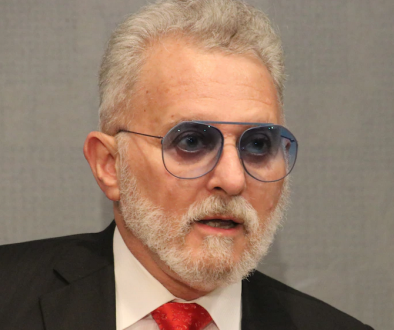
11/8/2025
What we are living through today on the world stage is a rehash of the Opium Wars except with the US rather than Britain as the Middle Kingdom’s main adversary.
In the mid-19th Century, the colonial powers used ordnance to force the Chinese to buy more of their exports, however insidious.
In 2025, the US is weaponising taxation through the imposition of exorbitant tariffs. Tariffs are themselves a form of theft when governments steal the margin on the sale of goods represented by a tax, which consumers then have to make up.
In the era before Trump, the United Nations propounded Sustainable Development Goals which corporations were to embed in their corporate governance: The 2030 Agenda for Sustainable Development adopted by all UN Members in 2015, set 17 World Sustainable Development Goals.
Taxation is seen as a tool to be employed to enhance sustainable development. Taxation carries three functions – the budgetary, redistributive and regulatory – providing government with revenue to pay for all kinds of goods and services. It is an important means of redistribution of income and wealth. Taxation is relied upon to finance policies to reduce poverty, to improve the healthcare system and the education system.
Under the Agenda for Sustainable Development it is envisaged that the redistributive function of taxation would be employed for combating income and wealth inequalities and used as a regulatory tool, by providing tax incentives to promote access to clean energy and climate-friendly technologies. All of these are stated as Sustainable Development Goals.
CSR (Corporate Social Responsibility) defines the aspiration that the ethical obligations of corporations will go “beyond compliance with the law”. Corporate Social Responsibility was conceived by American economist, Howard Bowen, in 1953. There had been philanthropists in Europe and America well before his time. It was President Bill Clinton who fostered the notion of corporate citizenship and social responsibility in the 1990s, which inspired the liberal left.
In March 2025, the US Counselor for Economic and Social Affairs at the US Mission to the UN, Edward Heartney, told the General Assembly:
“Put simply, globalist endeavours like Agenda 2030 and the SDGs (Sustainable Development Goals) lost at the ballot box. Therefore, the United States rejects and denounces the 2030 Agenda for Sustainable Development and the Sustainable Development Goals, and it will no longer reaffirm them as a matter of course.”
Are freedom and social responsibility mutually compatible?
The power to tax is rooted in the notion of the social contract divined separately by Thomas Hobbes and John Locke in the 17th Century, whereby citizens notionally give up personal rights in exchange for State protection.
There is an intellectual and moral leap involved in extending the social contract to international affairs.
Libertarians who resist the idea of paying tax and are the major proponents of the notion that tax is theft, still expect to be defended in the event that the country where they live goes to war.
Who is going to serve in the armed forces? Where is the money coming from to pay for the military arsenal without taxation?
Those who complain that taxation is theft are usually well-heeled and prepared to accept that such theft can sometimes be justified though, according to them, it is usually unjustified. The “taxation is theft” thesis is most often used to up the ante for justifying the taxing and spending of public money.
The Libertarian position is generally that taxation should only be imposed and public money applied, for programs that provide essential services – and then, of course, you can debate which services are essential and for whom.
On the other side of the coin, we have had anarchists like Pierre-Joseph Proudhon, who rejected both the State and the private ownership of capital as fundamentally illegitimate, arguing that “property is theft”.
Proudhon believed in only taxing the rich, which effectively meant that there would soon be no one left to tax. If you utterly deter the profit motive and consistently fail to reward acumen, innovation, and “going the extra mile”, there will be no wellspring from which to draw.
Nobel Laureate, Milton Friedman famously declared that:
“A society that puts equality … ahead of freedom will end up with neither equality nor freedom … A society that puts freedom first will, as a happy byproduct, end up with both greater freedom and greater equality”.
Many of the proposals which Friedman made in his 1962 work, “Capitalism and Freedom”, though considered by many to be heretical at the time, have since been adopted, including all-volunteer armed forces, flexible exchange rates and significantly lower marginal tax rates.
In his 1980 book “Free to Choose” Friedman wrote:
“Wherever the private market was largely suppressed, and the State undertook to control in detail the economic activity of its citizens … there, the ordinary man was in political fetters, had a low standard of living, and was largely bereft of any conception of controlling his own destiny.”
Relevantly, Friedman denounced proactive and reciprocal tariffs, advocating competition through choice.
If equality in practice stifles enterprise and equally rewards both the industrious and the indolent, without regard to their differential contributions, then a taxation system implementing this approach, will depress the market economy.
Another Nobel Laureate in Economics, Joseph Stiglitz – the Nobel Committee does not appear to discriminate between right and left – in advocating for a hefty Windfall Profits Tax, has questioned why you would tax something like labour if you can hit up a company or its chief executive, for mega-profits made from market movements or policy shifts.
Stiglitz asserts that in many democracies, our system is better described as “one dollar, one vote” than “one person, one vote”.
In a 2022 interview with The Saturday Paper in Australia, Stiglitz said:
“As we become a more innovation-focused economy, we also become an economy that’s more dependent on skills, so we need more public investment in education. And we need not just the hard forms of infrastructure, like roads, but the soft forms, like childcare, which allows parents to go to work. As our economy has evolved, it’s become more and more important for government to provide the basic services.”
And in attacking “those on the right who advocate for the abolition of regulation and the unfettered right to make untaxed profits”, Stiglitz responds:
“If you didn’t have stoplights in New York City you’d have gridlock, not freedom. And what is a stoplight? It is a simple regulation to help us all take our turn.”
For those who want the freedom to choose how their taxes will be spent, governments can identify target investments or categories of investment for public-private partnerships, which will lighten the burden on the public purse and deliver dividends to both the public and private sectors. Governments can also identify investment quotas which, when met, allow private investment to be redirected to filling other quotas, in the common interest.
At a minimum, such investment should be tax deductible but ideally, it should also be profitable. Depending on how such programs are framed, this kind of approach can meet the objectives of government, while preserving a measure of freedom for the private sector – and conferring some, albeit limited choice on the taxpayer, in the deployment of what would otherwise be tax dollars – while also being socially responsible.
When Friedman prioritised freedom ahead of equality, he was discussing only two of the three catchcries of the French Revolution, which were also a harbinger of the US Constitution: “Liberty, Equality and Fraternity”.
“Fraternity” is rarely discussed these days in the context of the taxation debate or as a social value which should be afforded similar importance to liberty and equality.
Fraternity means friendship and mutual support within a group – between people who feel they are closely linked to each other.
Good parents care for their children without considering whether they are in all respects equal, in terms of their mutual rights and obligations – and they are not equal. The qualities of empathy and care that are inherent in the notion of fraternity, must co-exist with freedom and necessarily involve social responsibility.
Friedman spoke about achieving “greater equality”, conceding that equality is relative and there is a distinction to be made between the right to equality, in the context of the democratic ideal and the realities of the marketplace.
When Jean-Jacques Rousseau wrote: “Man is born free but is everywhere in chains”, he was not commenting on the taxation system but rather, observing that “Man is enslaved to his needs and to his fellow human beings”.
Recognising this, we should raise fraternity at least to the same plane as freedom, for if we acknowledge the importance of creating and maintaining a respectful and harmonious society, then freedom and social responsibility will align with both private and public investment and spending priorities, to which a fair and equitable taxation system is integral.
Stewart Levitt is Senior Partner with Levitt Robinson Solicitors, specialising in corporate law, banking & finance, and class action law, www.levittrobinson.com.
Notes and References
1 Wolters Kluwer “Sustainable Tax Governance: A Shared Responsibility”
https://kluwertaxblog.com/2025/01/06/sustainable-tax-governance-a-shared-responsibility/ per Hans Gribnau, Full Professor, Tilburg Law School
2 “Social Responsibility of the Businessman”, Iowa University Press.
3 Doti, Dr J.L, “Milton Friedman Bust”, Chapman University Speech, 1 May 2001.
4 Dennis, R, “Joseph Stiglitz on how to make Australia richer”, The Saturday Paper, 23 July 2022



